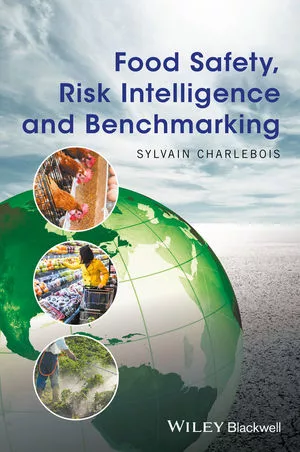FAO Identifies Needs for Including Gut Microbiome Data in Food Chemical Safety Risk Assessment

Image credit: pch.vector via Freepik
A recent publication from the Food and Agriculture Organization of the United Nations (FAO) summarized the conclusions of a technical meeting on the role of the gut microbiome in food safety chemical reassessment. The meeting was held in Rome, Italy on December 12–14, 2023, during which 17 experts explored the challenges and needs related to applying gut microbiome data in future food chemical safety risk assessments.
Existing challenges limiting the usability of available microbiome data for risk assessment include the need for microbiome-related definitions, improved and fit-for-purpose study designs based on realistic exposure scenarios, suitable and predictable biomarkers and endpoints, a better understanding of microbiome-chemical and microbiome-host interactions, and support for interpreting microbiome study results and linking the results to adverse effects.
Additionally, the experts raised technical questions about the sampling methods, models, and omics technologies currently used in microbiome science, and identified the benefits, drawbacks, and suitability of various approaches for different scenarios. The need for guidance to standardize research methodologies and data reporting was identified.
Specifically, there are three areas in which the inadequacy of currently available data impedes the inclusion of microbiome data in food chemical safety risk assessment: definitions, research needs, and standardization and standards harmonization. With respect to definitions, the experts suggested that:
- The gut population of reference microbiomes and microbiome fluctuations that are meaningful for health be defined (including concepts such as microbiome-disrupting, modulatory, or disturbing chemicals)
- Gut microbiome resilience, elasticity, and stability be better defined.
Examples of research needs include, among other topics: methods and models to relate gut microbiome changes and adverse health effects; real-time sampling approaches; host markers, together with gut microbiome biomarkers; activation, inactivation and reactivation of toxicants by the gut microbiota (individual susceptibilities to specific chemicals); and new endpoints for risk assessment based on functions to be protected (such as those related to the gut barrier function, anti-inflammatory status, specific metabolites or taxonomic signatures).
The need for guidelines and harmonization were identified regarding the following aspects: ranking of quality data and evidence; methodologies and approaches to identify and assess relevant gut microbiome perturbations and qualify them as healthy, transient or adverse; minimum methodological requirements and reference materials, data analysis, and reporting to help interpret results; sampling, storage and obtaining representative samples from population; study design; the role of the gut microbiome in chemical transformation to be implicitly included in toxicological analysis; and methodological strategies, awareness of hazards, chemical exposure in diets, and gut microbiome considerations in exposure studies.
Overall, the experts concluded it is challenging to determine the weight of evidence provided by gut microbiome research, due to 1) gaps in the knowledge of the gut microbiome itself and the lack of clear understanding of the biological relevance of microbial changes, 2) the limited data sets obtained in a reproducible manner using realistic scenarios and standardized methodologies, and 3) different degrees of development of the different analytical tools.
The technical meeting laid the groundwork for forthcoming discussions involving a broader multidisciplinary group to address specific action items.
Looking for quick answers on food safety topics?
Try Ask FSM, our new smart AI search tool.
Ask FSM →









